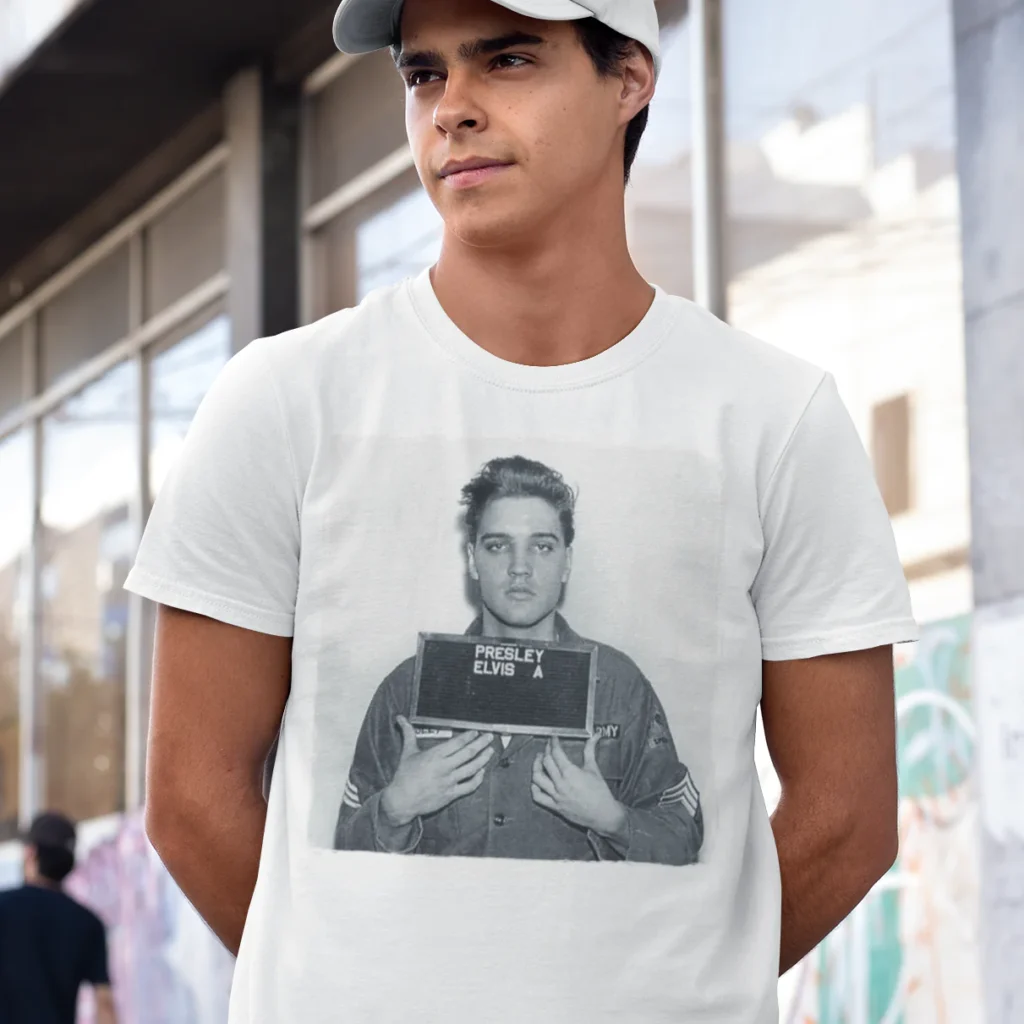In recent years, the fashion industry has witnessed the emergence of a controversial trend: the mugshot t-shirt. These garments feature the photographic likeness of individuals captured at their lowest moments – often after being arrested – printed prominently on the fabric. This phenomenon has sparked debates regarding ethics, morality, and the boundaries of artistic expression. In this article, we delve into the origins of the mugshot t-shirt, its cultural implications, and the arguments for and against its existence in the fashion landscape.
Understanding the Mugshot T-Shirt
The mugshot t-shirt phenomenon gained traction in the early 21st century, propelled by a mix of cultural fascination with celebrity scandals and the rise of streetwear culture. Initially, these shirts featured mugshots of notorious figures, such as musicians, actors, and athletes, whose run-ins with the law had captured public attention. However, the trend evolved to include mugshots of lesser-known individuals, often sourced from public records or online databases.
Exploring the Cultural Implications
At its core, the mugshot t-shirt raises questions about the intersection of fashion, ethics, and the commodification of human suffering. Critics argue that it glorifies criminal behavior, exploits vulnerable individuals, and perpetuates negative stereotypes. Conversely, proponents view it as a form of social commentary, challenging societal norms and highlighting issues of mass incarceration, racial profiling, and the criminal justice system’s flaws.
The Debate: Ethical Considerations
The ethical considerations surrounding the production and consumption of mugshot t-shirts are multifaceted. On one hand, opponents argue that profiting from someone else’s misfortune – particularly individuals who may be marginalized or struggling with addiction or mental health issues – is exploitative and morally reprehensible. Furthermore, the lack of consent from the individuals depicted raises concerns about privacy and dignity.
On the other hand, proponents argue that mugshot t-shirts serve as a platform for free speech and artistic expression. They contend that by confronting uncomfortable truths about society’s treatment of marginalized communities, these garments can spark important conversations about systemic injustice and the need for reform. Additionally, some argue that censoring or condemning such clothing sets a dangerous precedent for limiting creative expression and stifling dissent.
Legal Ramifications and Intellectual Property
The legality of producing and selling mugshot t-shirts is another contentious issue. While mugshots are considered public records in many jurisdictions, their commercial use raises questions about privacy rights and intellectual property. Some individuals depicted on these shirts have pursued legal action, claiming that their likeness was exploited for profit without their consent. Courts have grappled with balancing the First Amendment’s protection of free speech with individuals’ right to control the commercial use of their image.
Impact on Society and Perception
The proliferation of mugshot t-shirts has undoubtedly influenced societal perceptions of criminality, fame, and the commodification of personal narratives. Critics argue that by reducing individuals to their lowest moments – often devoid of context or empathy – these garments reinforce stereotypes and contribute to the stigmatization of people with criminal records. Furthermore, the glamorization of mugshots can trivialize the serious consequences of criminal behavior and undermine efforts to rehabilitate offenders.
Conversely, supporters of mugshot t-shirts contend that they challenge traditional notions of celebrity and disrupt the sanitized narratives propagated by mainstream media. By humanizing those who have been criminalized or marginalized, these garments invite empathy and encourage critical reflection on the factors that contribute to cycles of incarceration and social exclusion.
Navigating Cultural Sensitivities
As with any controversial trend, the mugshot t-shirt’s cultural significance varies depending on one’s perspective and lived experiences. What may be perceived as edgy or provocative by some may be deeply offensive or triggering to others. Recognizing and respecting these diverse viewpoints is essential for fostering constructive dialogue and understanding.
Conclusion
The mugshot t-shirt phenomenon represents a complex intersection of fashion, ethics, and social commentary. While it has sparked passionate debates about the boundaries of artistic expression and the commodification of human suffering, it also serves as a mirror reflecting society’s attitudes towards criminality, fame, and power. As we continue to grapple with the implications of this trend, it is crucial to approach the discussion with empathy, nuance, and a commitment to addressing the underlying issues of systemic injustice and inequality. Ultimately, the mugshot t-shirt challenges us to confront uncomfortable truths about ourselves and the world we inhabit.







